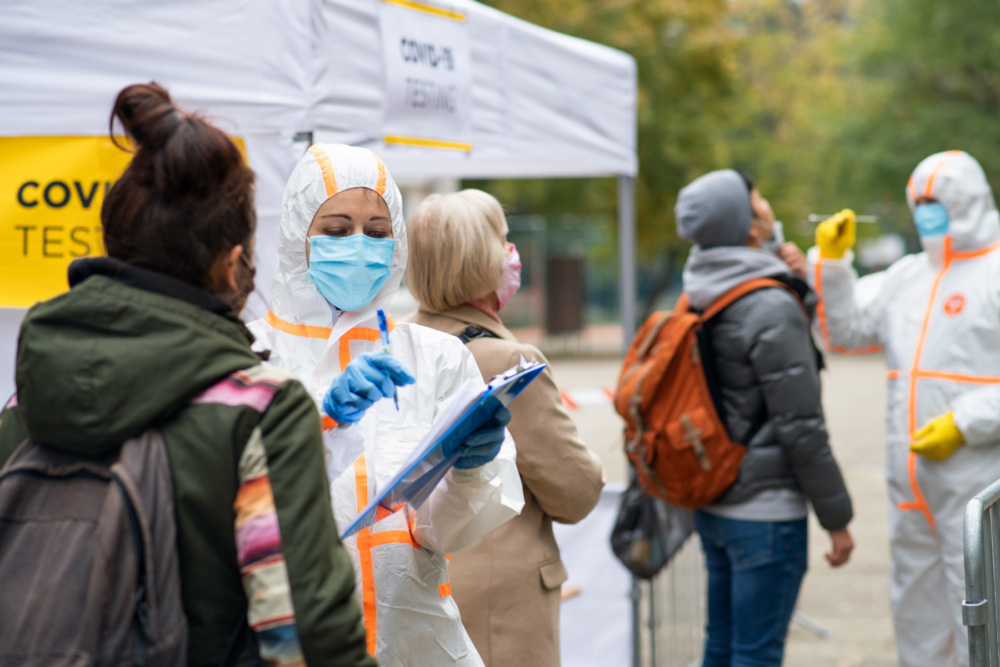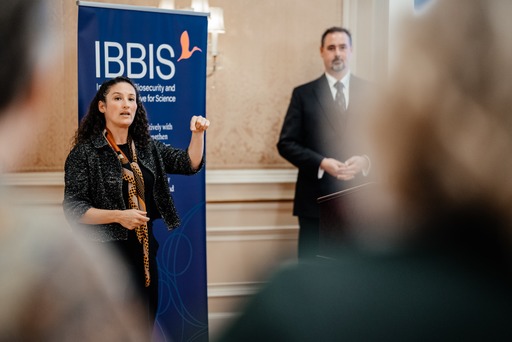
New Study Shows Robust Pandemic Preparedness Strongly Linked to Lower COVID-19 Mortality Rates
New study published in BMJ Global Health finds the pandemic was less deadly in countries that rank high on the Global Health Security Index.
With generous new grants from the Open Philanthropy Project and the Robertson Foundation, the Nuclear Threat Initiative (NTI) will pursue development of a Global Health Security Index that provides a public benchmarking of global biosecurity conditions—modelling many of the lessons learned from NTI’s first-of-its-kind Nuclear Security Index.
“Since our founding, NTI has been committed to addressing biological threats,” said NTI Co-Chairman and CEO Sam Nunn. “We are deeply grateful to Julian Robertson and to Open Philanthropy for expressing their encouragement and confidence in our work.”
NTI will partner on the Index with the Center for Health Security at the Johns Hopkins Bloomberg School of Public Health and the Economist Intelligence Unit. In the first phase, the team will focus on developing a framework (i.e., the value, principles, attributes, and major components) to assess and compare levels of health security and societal factors. As in the development of the NTI Nuclear Security Index, an international expert advisory group will inform the process. The $476,859 grant from Open Philanthropy for this project is supplemented by a grant from the Robertson Foundation.
The Open Philanthropy Project identifies outstanding giving opportunities, awards grants, tracks the results, and publishes the findings. Its mission is to give effectively and share findings openly so that others may build on them. One of the Project’s focus areas is global catastrophic risks including biosecurity and pandemic preparedness.
The Robertson Foundation is a private foundation established in 1996 by Tiger Management founder Julian H. Robertson, Jr., his wife Josie, and their family. The foundation takes a targeted, businesslike, results-oriented approach to philanthropy.
The Johns Hopkins Center for Health Security’s mission is to protect people’s health from the consequences of epidemics and disasters by conducting research and making policy recommendations. Center researchers study the organizations, systems, and tools essential to preventing and responding to public health crises.
The Nuclear Threat Initiative works to protect our lives, environment, and quality of life now and for future generations. We work to prevent catastrophic attacks with weapons of mass destruction and disruption (WMDD)—nuclear, biological, radiological, chemical, and cyber. Founded in 2001 by former U.S. Senator Sam Nunn and philanthropist Ted Turner, NTI is guided by a prestigious, international board of directors. Sam Nunn serves as chief executive officer; Des Browne is vice chairman; and Joan Rohlfing serves as president.
More about NTI’s biosecurity program can be found at www.nti.org/about/biosecurity.
Find out more about the development of the new index here.
Contact: Cathy Gwin (202-454-7706, [email protected])
##
Sign up for our newsletter to get the latest on nuclear and biological threats.
New study published in BMJ Global Health finds the pandemic was less deadly in countries that rank high on the Global Health Security Index.
NTI experts briefed government representatives at a G7 working group meeting in Berlin.
The World Bank launches a new fund to support pandemic prevention, preparedness, and response.


